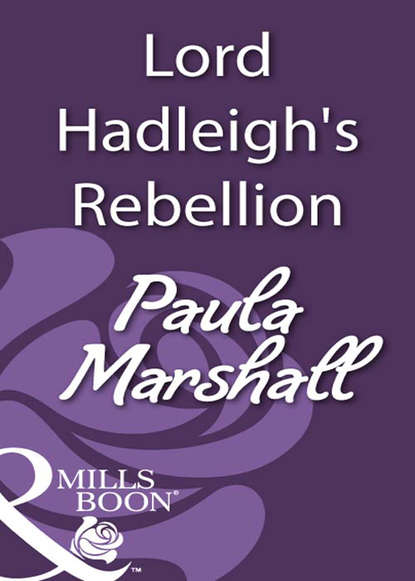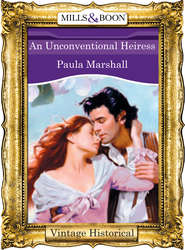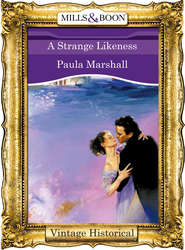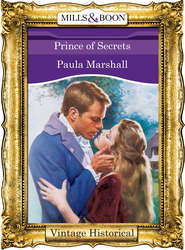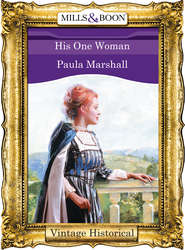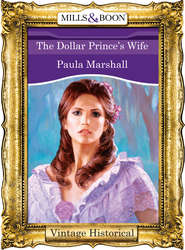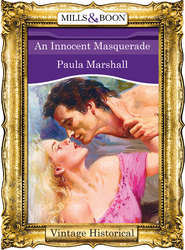По всем вопросам обращайтесь на: info@litportal.ru
(©) 2003-2024.
✖
Lord Hadleigh's Rebellion
Настройки чтения
Размер шрифта
Высота строк
Поля
The Judas kiss of treachery, she had thought later. The memory of it had caused her so many bitter tears until, as the years passed, she began to forget him and his broken promises—which made her present strong reaction to him so unexpected.
I grow maudlin, to allow him to affect me so powerfully. Why, I even started to ask myself whether he would recognise me, as I recognised him. Oh, he has changed. He is no longer a handsome, slim boy, but a man with a cynical face, all that charming innocence which he once possessed has quite gone.
‘My dear, have you been over-exerting yourself?’ asked her companion when she re-entered their drawing-room. ‘You look quite flushed. I do believe that it was a mistake to undertake a walk after a hard day’s travelling.’
‘Not at all,’ Mary replied, a little distressed that her recent experience had overset her to the degree that Miss Truman was able to remark upon it. ‘What you are seeing is merely the glow of exercise’—and what a lie that was! ‘The grounds are quite remarkable and worthy of the brush of a master painter.’
‘Indeed,’ said Miss Truman, quite deceived by this explanation. ‘I have read about their excellence, and now I am privileged to enjoy it. I have also heard that the General’s chef is known for his excellence and I am looking forward to dinner—or supper, as always he calls it—with the keenest anticipation.’
Would that I were, was Mary’s internal reaction to that!
Russell Hadleigh was not feeling much keen anticipation, either. He had not yet met the young woman whom his father, and hers, intended that he should marry, but was shortly about to do so. He had met her brother, Peregrine, always known to his associates as Perry, several times before, and had taken him in mild dislike. The notion of him as a brother-in-law did not attract.
Perry Markham was a gambler who took losing badly. Despite his recent bout at the tables, gambling was not an addiction with Russell. He could take it or leave it. It occasionally served to relieve a little his boredom with his empty existence. He could not understand a man allowing it to dominate his life as Perry Markham allowed it to dominate his. He wondered whether the General knew exactly how much his son was losing at the tables—and how much he was drinking to cover the pain of his losses there.
Russell had forsworn drinking that afternoon for the amusement of watching the others indulge themselves overmuch. It was during a pause in the idle conversation of young fellows with too much time on their hands, and too little to do in it, that he had seen a female hovering near the arch which led into the garden in which they sat. He could not quite see her face, but he thought that she looked young—or had he hoped that?
He had hoped that she might enter and bring a little brightness to an afternoon which was dull despite the sun which had begun to smile on them all. Alas, the sight of so many young fools—and he counted himself among them—must have caused her to turn away and deprive them of the pleasure of her presence.
Now his valet was dressing him for the evening with his usual loving care. It was an odd existence, he thought, which turned so much on dress and the other minor minutiae of a man’s existence. He had recently asked his father if, when the next election came along, he might be allowed to stand at one of the seats which the family controlled—a small borough whose name gave him his title. To become an MP would give him an interest in life and allow him to bring some experience of power and management to the time when he finally inherited.
‘You are not ready to do that, sir. Nor steady enough,’ his father had growled at him.
‘I am older than Lord Granville was when he first went into Parliament, and quite as steady,’ he had replied.
‘But you are not Lord Granville,’ his father had snorted.
What could he say to that, other than, ‘But I understand that he was only in his early twenties when he became an MP and I am over thirty. By then he had been an Ambassador to Russia.’
This did not answer, either. He wondered afterwards why his father had taken him in such dislike that he would not give him the opportunities which other heirs to noble names had been offered. Had what had happened thirteen years ago been enough to damn him as a serious person? Surely not—but the thought was always there.
Instead he was at Markham Hall to propose marriage to a young woman whom the on dits said was a frivolous, flighty piece—and that solely to please his father and not himself. Well, he was about to find out whether the on dits spoke truly or were simply baseless rumours.
Downstairs he found himself before the Tudor drawing room which opened on to the Great Hall where the General and Lady Markham, Perry and Angelica standing beside them, were receiving their guests. Angelica was pretty enough and fortunately bore little resemblance to her brother Perry, whose looks were not of the first stare, to say the least.
‘I understand that you are acquainted with my son, Peregrine,’ the General said, ‘but I believe that you have not yet been introduced to my daughter, Angelica.’
Russell allowed that he had not and turned his attention to her—to find that she was a beauty in the current mode, with bright blue eyes, flaxen ringlets and a prettily rounded figure beneath a pink silk frock decorated with cream rosebuds. She offered a curtsy to his low bow and simpered at him, saying in a little girl’s fluting voice, ‘So happy to meet you at last, Lord Hadleigh. I have heard much of you from my brother.’
Had she, indeed? And was that a recommendation or not?
‘And I am delighted to meet you, Miss Markham.’
‘Oh, please call her Angelica,’ interrupted Lady Markham cordially. ‘We are all friends here, I trust.’
‘Angelica.’ He smiled and bowed again. ‘So I must be Russell.’
It was the least he could say. He could only wonder what her conversation would be like. Well, he would shortly find out, for his valet had informed him that the Servants’ Hall had it that he was to sit next to her at dinner. Her conversation? Had he run mad? Persons of his rank married young women for their dowry, not their conversation.
He gave a bow and a nod to Perry, who also simpered at him. After the General and his Lady’s enthusiastic reception of him, Russell dismally realised that they, and his father, and now Perry, had settled between them that he was to marry Angelica. He wondered what all the hurry was about.
At last he was free to enter the drawing room, which was rapidly filling up with the General’s guests, most of whom knew one another. It was his duty to be pleasant to the other guests, and one thing which Russell did know was how to be pleasant. He thought that he might even be able to do it in his sleep!
It was when he had finished talking to the Honourable Mrs Robert Chevenix, whose husband was a crony of his father’s, that he saw a young woman sitting beside a middle-aged female who was obviously her companion. The young woman’s dark head was turned away from him, but there was something strangely familiar about her whole posture. It was not until she turned towards him, and he at last saw her face, that he knew who she was.
Mary Beauregard! Mary, his lost love whom he had last seen thirteen years ago. Somewhat to his surprise, she was still very much like the young girl he had once known. Oh, her face had matured, but in the doing had served only to add to her quiet beauty, not detract from it. Her skin was as creamy as he remembered it, and her dark eyes…
Those dark eyes in which he had once drowned—he would never forget them. Those eyes that, alas, were faithless like the lips which had promised him eternal love when he had last seen her. An eternal love which had only lasted a week.
Now, thirteen years later, he ought to be able to look at her coldly without the sight of her enchanting him as it had once done, but he couldn’t, and what sort of man did that make of him? It was a question which he did not immediately answer, because at that moment she saw him. Instead, a new question sprang into his mind.
What did she see when she looked at him?
Was she as inwardly disturbed as he was?
Only the eye of love, or of hate, could detect the faintest quiver of her mouth, or the hand which shook when she raised it to smooth down the fichu of her dowdy dress, but Russell saw both telltale signs and wondered which of the two contrary emotions was afflicting him and, quite possibly, her.
He bowed, his face, usually so mobile, a mask—the impassive mask which he wore when he chose to play cards. He said as coolly and distantly as common politeness would allow, no more, no less, ‘Mrs Wardour, I believe. We meet again after many years.’
Mary looked up at him. Near to, as he had seen the changes time had wrought in her, she saw more plainly those which had altered him. One thing that struck her again was the cynicism written on his face, in the curl of his lip, in the knowing eyes which looked at her, and seemed to dismiss her.
‘Yes,’ she replied, as cool as he. ‘I am, however, now the widow of Dr Henry Wardour.’
This statement shocked Russell out of his deliberately chosen indifference to her and the company in which they found themselves.
‘I must commiserate with you upon his death, he must have been a good age.’
‘But not so very old,’ she riposted. Mary would never have supposed that she could outface her one-time love to the point where she retained her self-control and he did not. ‘He was only in his early fifties. Such a difference in age on marriage is a commonplace in our society. Indeed, I gather that you are here invited here as a possible suitor for Miss Markham so I find your surprise at my marriage a little misplaced.’
What in the world had happened to the ardent young woman whom he had once loved that she could speak to him in the tones of a cold shrew?
‘Your rebuke is a just one,’ he admitted, and could not say more, for at that point they were joined by Perry Markham, since the Markhams’ reception line had ended and dinner was almost upon them.
‘So, Hadleigh, you have already made yourself known to Mrs Wardour, but then, no pretty woman ever fails to gain your attention, eh,’ and he poked a stiff finger into Russell’s ribs which set him moving away.
‘You mistake, Markham. Mrs Wardour and I knew one another many years ago—and we were renewing an old acquaintance, were we not?’
Mary’s response to that was to offer both men a stiff smile.
‘Too many years ago for us to be able to claim that we are old friends,’ she said.
If this frosty answer surprised Perry Markham it did not surprise Russell.
‘Well, in that case, old fellow,’ went on Perry, smiling at Mary, ‘I shall not be encroaching on a long-time friendship if I inform you that I am to escort Mrs Wardour into dinner. But fear not, you are to take in my sister Angelica, who cannot wait to further her acquaintance with you. She will be along any moment to claim you, so you will forgive me if I ask Mrs Wardour to join me so that I may show her my father’s famous collection of porcelain.’
Both Russell and Mary were only too pleased to end their unwanted and unhappy tête-à-tête—with the exception that Mary had no wish to become more intimate with Perry, and Russell was not greatly looking forward to squiring Angelica, whom he suspected was exactly the kind of vacuous young creature whom he had always tried to avoid.
However, they both separately thought that in an imperfect world one cannot always have exactly what one wants—which was a conclusion which they both took into dinner with them!





